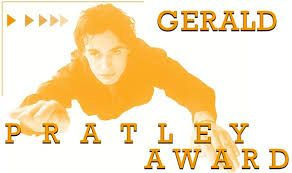Panel: Entangled Media Archaeologies
- Cleo Sallis
- Mar 16, 2023
- 2 min read

Friday, 24 March 2023 • 4:00-5:30PM EST
Register here: bit.ly/tfmsmarch
HÉL ČHAŊKÚ KIŊ ȞPÁYE (THERE LIES THE ROAD) – Suzanne Kite, Concordia University
In this presentation, Suzanne Kite aka Kite will overview the possibilities of the ethical creation of artwork through a theory of creation methodologies. It will investigate how Lakȟóta ontologies are well-suited for creating ethical and reciprocal relationships with nonhumans such as AI and articulate that perspective in the context of creating performance artworks and collaborative art-making processes.
Practicalities of Media Archaeology, a Maintenance Perspective – libi rose striegl, University of Colorado Boulder
The work of the Media Archaeology Lab (MAL) is both shaped by its mission to keep the collection in as functional a state as possible, and limited by the physical and temporal realities of maintenance and repair in all shapes. This presentation will detail the practical limitations of hands-on media archaeology, using several examples from current projects at the MAL. Media archaeological praxis therefore becomes inseparable from that of maintenance and repair, an active witnessing of the excesses of obsolescence-centered technology.
Undertaking Media Archaeologies in the Archives of the “Father” of Facial Recognition Technologies – Aaron Tucker, York University
In his research, Aaron Tucker outlines how a multi-pronged media archeological methodology is an incredibly effective way to reckon with the complex centuries of racist and misogynist history related to the development of facial recognition technologies (FRTs). Such a media archaeology leverages the fact that FRTs and other AI-enabled technologies, have long and well-documented technical histories of their computational vision and visualities. In turn, documents and developments related to the technical protocols contain within them the mappings of FRTs representational and political protocols. Likewise, materials related to the representational and/or political protocols often describe the necessary technical protocols needed to operationalize such logics. This presentation will illustrate the value of a three-pronged media archaeology by examining the specific example of the Woodrow “Woody” Bledsoe’s papers (University of Texas), a man considered to be the “father” of FRTs. Evaluating the materials in the archive via a media archaeological methodology showcases the complex interactions of protocols within Bledsoe’s work while simultaneously pointing backwards towards past histories of the technology that his work aligns with, while also highlighting the influences Bledsoe has had on contemporary FRTs.
Panel convened by Cleo Sallis-Parchet & Em Barton as part of the Toronto & Film Media Seminar.



Comments